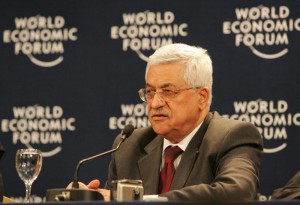As Palestinian Authority President Mahmoud Abbas asked the U.N. to accept his country as full member this past Friday in New York, and even though it is doomed to failure as long as the U.S. stands in the way, Palestine is already paying economic price for its quest for recognition.
The World Bank forecasts GDP growth of 7% in the Palestinian territories in 2011, as compared with 9% in 2010. In its opinion, this slowdown is primarily due to the decline in foreign aid. But it is also due to the U.N. push, insofar as it creates uncertainty and discourages the private sector from investing. In fact, the possible consequences of the Palestinian approach are as varied as worrying: resumption of violence, establishment of Israeli military checkpoints between the West Bank cities, resignation of Abbas, and suspension of U.S.aid ($500 million a year).
“Businesses have stopped hiring and at least one bank merger and a significant investment from the United Arab Emirates have been postponed,” Jihad Wazir told the Financial Times, governor of the Palestinian Monetary Authority. “It’s not so much the vote itself, but concerns about the Israeli response,” he said. This week, Israel threatened to withhold a portion of the $1.2 billion it collects each year in taxes on behalf of the Palestinian Authority if the latter pursued statehood recognition. As Mohammad Mustafa, head of the Palestine Investment Fund, put it in an interview with Bloomberg Television, the Palestinian economy could collapse within weeks without these funds.
This marked economic slowdown is a real blow for a nation that has nonetheless made important strides in the field of institutions, health, services, and education. The economic growth reached 9.3% in 2010, ahead of Israel’s 4%. While 55% of economic activity is based on the public sector, imports of cars rose by 77% between 2009 and 2011. During this period, 389 new companies have emerged in the West Bank. Even Gaza, which undergoes a partial blockade, has an exceptional level of 15% growth. But unemployment remains extremely high in both Palestinian territories: 16.9% in the West Bank and 37.4% in Gaza, which is still facing the extensive damage caused by Israeli military operations during Operation Cast Lead in late 2008.
According to World Politics Review, which refers to an IMF report, the biggest drag on Palestinian economic development has actually been the occupation itself:
“In short, the current economics of the Palestinian territories should not be seen as a reliable omen of a Palestinian state’s economic prospects after independence, but rather as a particularly anomalous and dysfunctional set of conditions that exist in large part because of the absence of Palestinian sovereignty. Earlier this year, the IMF estimated that, were it not for the effects of conflict and Israeli restrictions since 1994, the current GDP of the West Bank and Gaza would be 88 percent higher than its current level.”
In fact, the context of Israeli occupation has direct consequences on the Palestinian economy:
Well, it appears that Palestinians will still have to wait a bit longer before prospering. As an aside, it is remarkable that the countries that already recognize Palestine as a state represent over than 75% of world’s population but less than 10% of the global economy.




